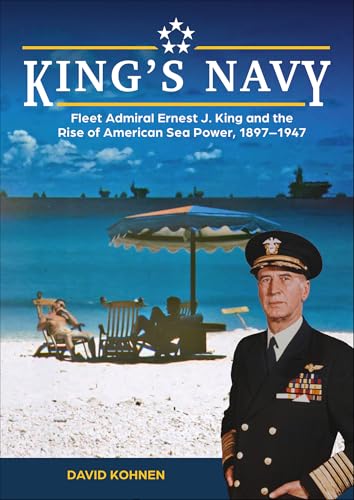
Autobiography of George Dewey, Admiral of the Navy
by George Dewey
Popularity
2.97 / 5
* A book's popularity is determined by how it compares to all other books on this website.
Where to buy?
Buy from Amazon* If you buy this book through the link above, we may receive a small commission at no extra cost to you.
Autobiography of George Dewey, Admiral of the Navy by George Dewey
Details
Perspective:
Commanders
Military Unit:
US Navy
True Story:
Yes
Biography:
Yes
Page Count:
344
Published Date:
1987
ISBN13:
9780870210280
Description
Brief Summary (no spoilers)
Autobiography of George Dewey, Admiral of the Navy is a first-person narrative by George Dewey himself, providing an insight into his life and career. The book delves into the personal qualities and experiences that shaped Dewey, particularly exploring how an ostensibly average officer rose to become a celebrated hero following the Battle of Manila Bay during the Spanish-American War. The autobiography offers readers a glimpse into the mind of a man who was part of key historical events and captures moments that defined not just his career but his lasting legacy.
Main Themes and Topics
The autobiography covers several prominent themes, one of which is leadership during times of conflict. Dewey reflects on his military career, shedding light on the attributes that enabled him to lead effectively. Another significant theme is duty and patriotism, with Dewey exemplifying the Victorian ideals of service and commitment to one's country. Additionally, the book deals with transformation and personal growth, discussing how Dewey's experiences and decisions contributed to his development both as an individual and as an officer in the U.S. Navy.
Writing Style and Tone
Dewey's writing style mirrors the period's formal prose, characterized by modesty and restraint. The tone is reflective and occasionally introspective, revealing a man who is both humble about his achievements and dedicated to presenting an honest account of his life. While the narrative is primarily factual and linear, reflecting the straightforward nature of military writing, it offers a deep and personal insight into Dewey's character and professional ethos.
Criticism
Critics have noted that while Dewey's autobiography is informative regarding naval operations and his personal reflections, it may come across as overly modest in self-assessment. This reserved approach might leave some readers craving more detailed personal anecdotes or deeper emotional reflections. Additionally, as a product of its time, the text sometimes assumes familiarity with certain historical contexts, which might challenge modern readers less acquainted with the era.









